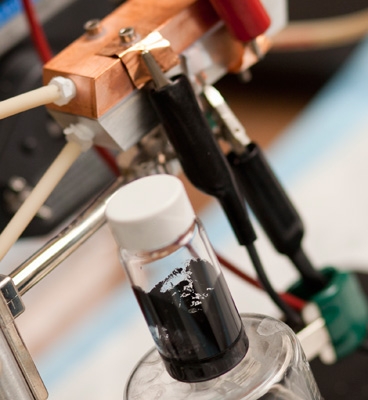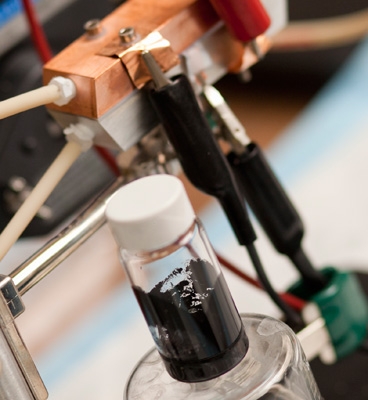
A pioneer in battery research who already successfully launched a $350 million company to supply batteries to the likes of GE and Chrysler has done it again — only this time, "it" represents the complete reinvention of battery technology as we know it.
This technology is in the research phase, but if it can be cost-effectively brought to market — and there's every reason to believe that it could be — it could revolutionize the way we store and transport energy, in the process fully replacing fossil fuels and especially oil.
The key to this new technology is that the metals that would normally be solids in a conventional battery have been broken into nano-size particles that are suspended in a liquid. The batteries, known as "semi-solid flow cells," store their power in a black gunk that looks like motor oil, which has earned it the nickname "Cambridge Crude." Because charge is stored in this liquid, it would be possible to "fuel up" an electric car with charged liquid electrolyte, just like fueling up at a conventional gas pump.
This could eliminate one of the primary issues with turning electric cars into true analogues for the modern automobile — namely, that transferring energy into them takes significantly more time than the comparable process of filling a car up with gasoline.
A second knock against electric vehicles is that their batteries are less energy-dense, and therefore heavier, than an equivalent amount of gasoline. But the new semi-solid batteries could be up to twice as energy-dense as conventional lithium-ion batteries, which means that car manufacturers could get twice the range out of the same battery mass, or go for a lighter vehicle overall.
The batteries could also be constructed at lower cost than conventional ones, which makes them suitable for giant, grid-scale applications like storing power from intermittent renewables.
So, just to sum up: This discovery represents cheap, energy-dense liquid batteries that could make renewable power cheaper and electric cars truly competitive. And did we mention they can also be charged like conventional batteries? If they fail to name their first viable prototype Magic Unicorn, they're missing out.


